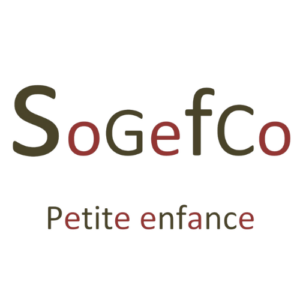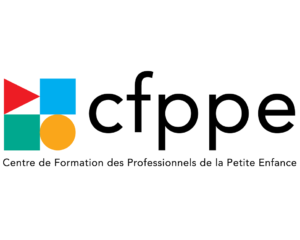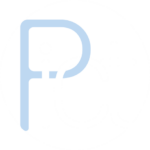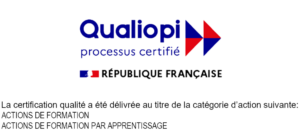
Work-study programme as a home-based childcarer
Formation en alternance :
Work-study students benefit from childcare experience, as well as an apprenticeship or professional contract with no registration fees. They are paid under an employment contract for the duration of their training, by a specialised childcare agency (the employer).
Length of training: 600 to 950 hours, across 10 or 16 months, starting in September.
Training hours: Monday, Tuesday, Thursday and Friday, 9:30 a.m. to 12 p.m. and 1 p.m. to 3:30 p.m.
Accompanying childcare work: home-based family work via a partner childcare company, taking care of children aged 0 to 6 after school and on Wednesdays.
Objectives
The aim of this training program is to equip professionals with the tools and skills they need to become leaders and driving forces within Early Years environments such as crèches, nursery schools or home-based childcare services. It provides them with a solid pedagogical foundation, as well teaching current best practices, to ensure that children and their families are well looked after. It also encourages the development of professional autonomy and stimulates individual reflection.
At the end of the training, the trainee should be able to:
Respond to children’s daily needs and propose group and/or individual activities adapted to their development
- Apply the theories of attachment and affective and sensory niches by being present, receptive, and available to the child’s requests, to enable him/her to learn in complete safety.
- Create situations that foster the development of children’s autonomy by setting up activities that enable them to socialise, encouraging their active participation by offering them choices and opportunities for exploration, with the aim of boosting their self-esteem.
- Create contexts for sensory discovery, using food as an educational tool to develop the child’s senses.
- Provide basic care, taking into account children’s emotional needs and current protocols, to ensure child safety and proper hygiene.
- Implement the individualised care plan drawn up by the relevant experts in consultation with the family, taking into account the child’s individuality and needs.
- Create safe, playful spaces, modulating and adapting them to enable the child to learn in a variety of safe ways.
- Set up early-learning activities based on professional observations of children’s behaviour, using a variety of teaching materials and resources to stimulate children’s imagination and creativity, and to respect their stages of development.
- Welcome children with disabilities by designing a personalised support project to foster their integration and contribute to their overall care, in liaison with the network of specialised players (Centres d’Action Médico-Sociale Précoce; Centre Ressources Petite Enfance et Handicap; etc.).
Welcome and support parents in their parental role
- Convey information to parents on arrival and departure, ensuring professional written traceability of information gathered during the day from parents and professionals, so as to ensure educational continuity.
- Create a bond of trust, valuing each parent’s commitment to their child’s coeducation by asserting a professional posture tailored to the situation, in order to support parenting actions for the child’s well-being.
- Stimulate parental involvement and integration by inviting them to take part in projects, in order to consolidate the bond of trust.
- Advise and refer families to external institutions and specialised professionals, taking into account their needs and/or requests for appropriate care.
Manage and/or lead a team of professionals in educational activities
- Analyse observations made individually or as a team, taking into account the children’s needs to adapt the implementation of the facility’s pedagogical project.
- Accompany, support and coordinate the team, encouraging collaborative work (communication, kindness, efficiency, respect), while taking into account each person’s individuality and any disabilities
- Lead effective meetings and organise operational logistics, taking into account the needs of the team, in order to guarantee the smooth running of the facility.
- Monitor and analyse professional sources by carrying out research in order to gather relevant information on the evolution of the profession and make it available to professionals and families.
The skills targeted are defined in the certification reference framework. For further information, please consult the Accueillant Éducatif title sheet on the Répertoire national des certifications professionnelles.
Training Modules
Bloc 1 : Meeting the child’s daily needs and offering developmentally appropriate group and/or individual activities
- Helping children build their emotional security
- Welcoming children and supporting their overall development (social, psychological, intellectual, motor, etc.)
- Active teaching methods (such as Montessori, Pikler, etc.)
- Adaptation of inside spaces
- Preparing and leading early-years activities, taking into account each child’s individuality, age and stage of development
- Implement or participate in the implementation of a personalised support project.
Bloc 2 : Welcome and support parents in their parental role
- Welcoming parents on a daily basis (transmission of information, positive and non-violent communication)
- Support families throughout their child’s care period
Bloc 3 : Manage and/or lead a team of professionals in educational activities
- Reflect on the care of each child, adapt the pedagogical project and contribute to its implementation
- Manage the educational team, ensuring continuity of direction in the absence of the person in charge.
- Produce an early childhood information resource for professionals and families
Teaching Methods
- Face-to-face, e-learning and blended learning courses
- Bilingual training (English and French), adapted to the learner’s level of French
- Periods of on-the-job training (in the workplace, at home)
- Training resources: training rooms, digital platform with online access to teaching materials, technical platforms (childcare, maintenance, kitchen), library of reference works.
- Varied pedagogical approaches: theoretical contributions in class, interactive sessions, practical workshops, written and oral exercises, individual and group work, work situations, case studies, research, and independent work, help in preparing for assessments, follow-up in preparing documents and files.
Assessment methods and career opportunities
The acquisition of skills will be assessed throughout the course, using a variety of teaching methods such as discussions, lectures, individual and group activities, role-playing and practical work.
In order to assess all skills, each block is evaluated by written and oral assessments, in the form of MCQs (Multiple Choice Questions), individual and group research projects: case studies, work situations, situational analyses, and/or dossier writing.
To qualify for the Accueillant Educatif qualification, candidates must pass all 3 skill blocks, with a minimum average of B for each. In certain cases, it is also possible to obtain the Titre if 2 skill blocks are passed with a minimum average of B for each bloc.
The course can be adapted according to prior learning, exemptions, and regulatory equivalences: possibility of validation by skills blocs.
A training booklet is completed by the training organisation and the employing company for each trainee. A training certificate is issued at the end of the course.
France Compétences provides details of the many career opportunities available.
Last update 05/09/2024




 Click to see certificate
Click to see certificate